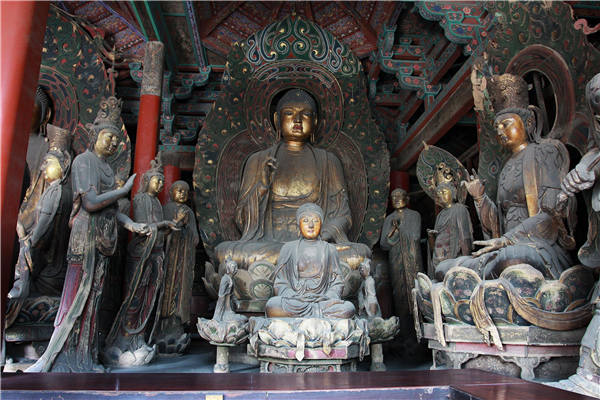Near, yet far from the madding crowds


For example, covering an area of 66,000 square meters, Huayan Temple was first built in 1038 during the Liao Dynasty (916-1125), ruled by Khitan people. They are believed to have been sun worshippers since, uniquely, the temple faces east. Such a large-scale and well-preserved complex from that time is rare. The halls in the upper temple feature exquisite murals from the Ming Dynasty (1368-1644). A sculpture displaying a smiling Bodhisattva is known as the "Venus from the East".
Shanhua Temple is another Liao Dynasty gem in Datong.
When I stepped into the temple, I was amazed by the great hall. The halls and pagodas also have elements dating back to the Tang Dynasty (618-907), widely regarded as one of the high-points of traditional Chinese culture. When I visited the temple, I was the only visitor in the courtyard, which gave me a sense of serenity.
There are more places to visit in Datong, such as Fahua Temple, and the Nine-Dragon Wall, a spirit screen to ward off ghosts, both from the early Ming Dynasty.
When people look for examples of what Chinese architecture was like 1,000 years ago, many visit Kyoto or Nara, because many of their old buildings are in style of the Tang Dynasty.
After visiting Datong, I wonder: Do we really have to go abroad to find such examples?





































